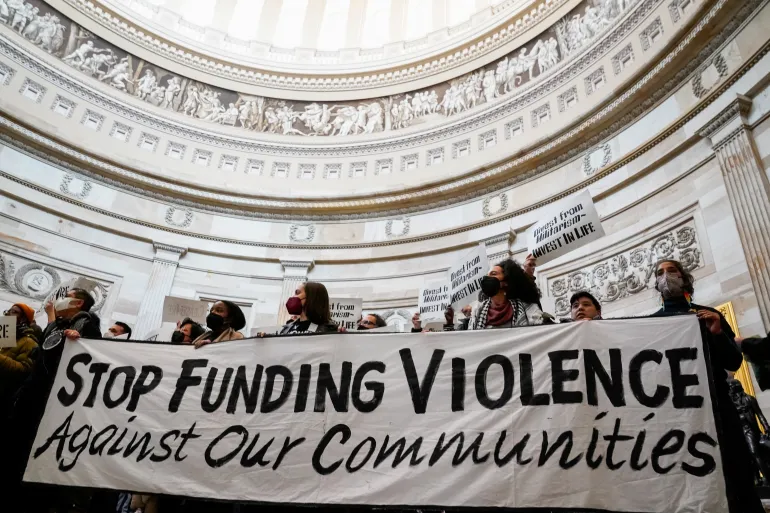Muslim and Arab Americans are demanding a significant change in US Middle East policy, rejecting the notion that cultural tolerance and interfaith understanding are sufficient remedies to address the problems of empire. The growing rejection of these approaches reflects a seismic shift in Muslim American consciousness, with an increasing focus on political critique and action.
The call for change comes in the wake of rising anti-Muslim incidents in the United States and Israel’s onslaught on Gaza. In response to these troubling events, President Joe Biden’s administration announced a national strategy to combat Islamophobia, which was mirrored by some US academic institutions adopting anti-Islamophobia measures. However, these initiatives have been met with widespread scorn and ridicule.
Critics argue that the strategy fails to address the US’s complicity in the atrocities taking place in the Gaza Strip and the pro-Israel slant of US media coverage. The crackdown on pro-Palestinian activism on college campuses has also cast doubt on the sincerity of universities’ anti-Islamophobia initiatives. Muslim Americans are increasingly rejecting attempts to replace systemic political demands with those focused on intolerance or exclusion.
This shift in Muslim American advocacy and organizing marks a departure from the past two decades, which saw a focus on cultural acceptance and interfaith dialogue. Efforts to combat misconceptions about Muslim communities through cultural awareness events, diversity initiatives, and interfaith initiatives were believed to legitimize Muslim presence in the US. However, some marginalized voices accused these programs of “faithwashing,” using interfaith dialogue to distract from Israeli state violence against the Palestinian people.
The recent mobilization of Muslim and Arab communities in demonstrations calling for an end to US material support for Israel and an immediate, permanent ceasefire highlights the growing unity among these groups. This mobilization is a significant departure from the dynamics of the past two decades and has raised concerns among Democratic Party leaders, particularly in key states like Michigan.
The rejection of faithwashing attempts and the demand for a shift in US Middle East policy has garnered support not only from Muslim Americans but also from non-Muslims advocating for Palestinian liberation. The focus has shifted from seeking cultural tolerance to addressing the enduring system of apartheid and its project of ethnic cleansing and genocide.
While Biden’s national strategy on Islamophobia has fallen flat among Muslim voters, it remains to be seen whether this will push the voting bloc beyond two-party electoralism, leading to increased support for third-party options and mass-movement organizing.
The seismic shift in Muslim American consciousness reflects a growing refusal to accept cultural tolerance and interfaith understanding as sufficient remedies for the problems of empire. The demand for political critique and action underscores the urgency of addressing US Middle East policy and its impact on Muslim and Arab communities.




